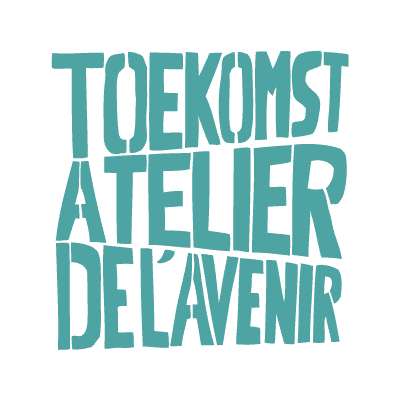What is TADA?
TADA (short for ToekomstATELIERdelAvenir) is a network that involves citizens, civil society and businesses in the integration and emancipation of Brussels’ socially most vulnerable teenagers (and their entourage).
TADA’s direct impact
In Brussels, TADA reaches more than 2000 teenagers from socially vulnerable background (and their entourage) through a network that intensively coaches these teenagers during many years. Through our weekend schools and our alumni network, we offer extra-scholarly activities that set the learning (-bar) high, while equally fostering the wellbeing of the child.
TADA’s weekend schools
At TADA’s weekend schools in Molenbeek, Saint- Josse-ten-Noode, Anderlecht and Schaerbeek, hundreds of teenagers (10-14) discover themselves and diverse aspects of society thanks to weekly experiential classes. Every Saturday these teens receive courses from inspiring professionals – volunteers – from all areas of the labor market, for example judges, nurses, chef cooks or mechanics.
Through these courses on topics such as law for kids, TADA shows the teens what ‘later’ may have in store for them. By doing, these teenagers not only get to know the greater society and the labor market, but they also discover themselves: what they’re good at and what they like.
During the long-term coaching process offered by TADA, these teenagers develop a critical eye as well as their horizontal skills, such as creativity, discipline, and a sense of initiative.
Giving them enlarged horizons, TADA motivates them to give their best (at school/ in life) and to keep on learning, lifelong, this way stimulating them to become responsible citizens, contributing positively to our society, later on.
TADA’s alumni-netwerk
TADA For Life offers an alumni-network to the TADA-teenagers who have finished their three-year-journey at one of the weekend schools. This network keeps on pushing the alumni, telling them: “Hey, you can also do this too. Develop yourself. Do your best. Be an example for others, at the weekend school, towards your entourage and in society.”
Through various activities, an online platform and additional trainings, the network gives these teenagers an extra boost, this way lowering the – for them – rather high threshold towards lifelong self-development.
TADA 2.0 - MORE IMPACT
TADA's impact goes beyond its work with teenagers. TADA 2.0 gives additional motivation and tools to those who have had all chances in life and who want to contribute to a more inclusive society.
On TADA 2.0, you can discover how your own (unconscious) prejudices sometimes play tricks on you, and most importantly, what you can do about it. You will find TADA stories and tips and tricks from our network, but also workshops for adults. In short, we share our perspective and experience with you, and offer an overview of TADA's approach.
TADA’s indirect impact
Increasingly, individuals or organisations show an interest in TADA. A growing number is even likely to launch initiatives inspired by TADA. Upon request of many parties, TADA has been stepping up awarenessraising – with campaigns, keynotes, workshops – to make TADA a contagious example.

Why TADA?
In Belgium, inequality in education is very high. This is particularly the case in Brussels, where many children are born in underprivileged circumstances.
Unfortunately, traditional schools working in ‘challenging’ Belgian neighbourhoods don’t do for disadvantaged youth. They do not serve as social elevator: Sadly, it has been proven that if you are born in precarious circumstances in Belgium, chances are statistically very high that you will also leave this world in precarious circumstances. Belgium is performing bad compared to other countries in the entire OESO-group, as shown multiple times by the PISA-results.
TADA wishes to break this pattern for as many children as possible. We therefore offer additional education in the weekend, because children can also get inspired, motivated and gain knowledge elsewhere too, outside of the traditional school or the family.
At the same time, TADA equally builds bridges, in polarizing times of alienation, by allowing an intergenerational and intercultural dialogue. With the help of thousands of volunteers and many schools, companies and non-profit organisations we encourage more inclusive society in an indirect way.
You want to know more? Discover TADA's "golden circle".

Objectives
TADA stimulates its participants to:
- broaden their (future) perspectives
- become motivated, resilient individuals with self-knowledge and self-esteem
- develop their horizontal or life skills
- deepen their knowledge of and connection with the society they live in.
By inspiring teenagers in a safe environment that opens the door to the world, TADA seeks to empower its young participants and prevent demotivation and its negative consequences (such as learning fatigue, early school dropout, delinquency, unemployment, extreme radicalisation).
By encouraging an intergenerational and intercultural dialogue between different ‘worlds’ that wouldn’t meet under ordinary circumstances, TADA also seeks to contribute to increased integration and social cohesion. Want to know more? Look at this short move of Sofie Foets, TADA’s founder, illustrating the sense of TADA or discover here TADA’s “golden circle”.

How did TADA begin?
TADA was launched in the most underprivileged areas of Brussels in 2012-2013.
The concept for TADA has already proven its success in The Netherlands at ‘IMC Weekendschool’, who has already reached several thousand socially vulnerable teenagers with this internationally rewarded approach, since 1998.
Sofie Foets and Heleen Terwijn – the respective founders of TADA and ‘IMC Weekendschool’ – met in the European Parliament in May 2011 when Heleen Terwijn spoke as an expert at the conference ‘Best practices in Europe in the field of informal education for disadvantaged youth’. Sofie Foets was at the time working in the European Parliament as a policy advisor on various themes, including education.
.Inspired by this gathering, Sofie has launched TADA, that is functioning independently from IMC Weekendschool. Both organisations do collaborate informally though, in order to learn from each other but also to organise activities for the alumni at both sides of the borders.
